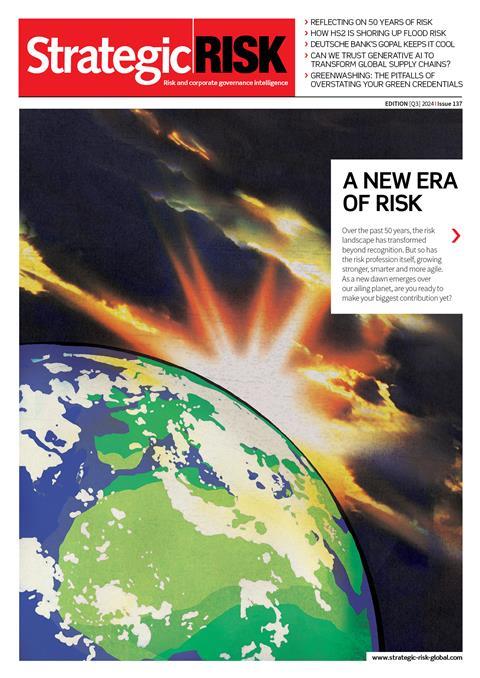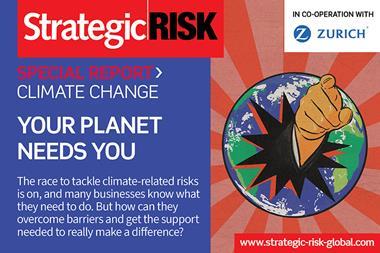COVID-19 has shown that it will be imperative for businesses to reprioritise risk and to innovate and explore new risk management strategies, according to a survey by Aon.
Eighty two percent of respondents said, prior to COVID-19, a pandemic or other major health crisis was not a top 10 risk on their organisation’s risk register. At the time of Aon’s Global Risk Management Survey in 2019, pandemic risk was ranked 60 out of 69 identified risks.
Enterprise risk management strategies and management teams were therefore unable to rapidly respond to the threat of the pandemic and, when it hit, their risk infrastructure struggled to cope with the initial response.
Rory Moloney, CEO of Global Risk Consulting, Aon, said: “There is no question that the COVID-19 pandemic will permanently change the way companies operate. There is a long way to go before we are in the ‘post-COVID era’, but as we move towards a recovery phase, companies must now ask what risk management and resilience should look like going forward.
”Among the top priorities for companies seeking to reshape their business are the new and accelerated use of technology, redeploying resources, workforce planning and rethinking the future of work—this is only the beginning of a much more long-term evolution in risk management.”
Regional differences
Aon’s report identified differences in how businesses have responded regionally; prior to COVID-19, less than 30% of respondents in EMEA had a pandemic plan in place, similar to North America at 31%, but contrasting to 52% of respondents in APAC.
Notably, organisations in APAC had built more robust pandemic programs in response to similar threats already faced, such as SARS and the swine flu. The survey found that across all industries and regions, protecting people and assets was a top priority for participants.
Fluctuating pandemic infection rates within regions are influencing which stage businesses find themselves in (‘react and respond’, ‘recovery’ and ‘reshape’).
For example, North America has the highest proportion of organisations in the ‘recovery’ phase (59%), while APAC organisations reported they were in the ‘reshape’ phase in higher numbers than the benchmark (36% of APAC organisations compared with 29% overall), likely because of their experience in the progression of the pandemic.
Despite these differences, one core theme emerged: more than half of companies report that they expect COVID-19 will continue to impact their business a year from now.
Need for innovative risk transfer
Richard Waterer, managing director EMEA, Global Risk Consulting, Aon, said: “Government response has been a necessary stopgap for a global event of this size, but our survey reveals there is also a clear need for risk transfer solutions to support corporate mitigation efforts.
”Part of that journey will require companies to rethink access to capital alongside risk, in addition to ongoing collaboration between the public and private sector.
”Equally important is that the insurance industry innovates in response to companies’ changing needs, increasing global volatility and emerging risks. Successful insurance solutions in the wake of the pandemic will be more agile, strategic, targeted and scalable.”
The global report highlighted that a critical part of reacting and responding to crisis, and building a successful enterprise risk management strategy, will be in ensuring that the workforce is able to adapt, communicate and collaborate when a crisis strikes.
Greater digital dependency
The increased dependency that organisations have placed on digital platforms is making them potentially vulnerable to adverse cyber events, information loss and reputational impacts on a new scale, and will require a refresh of cyber and risk management strategy.
Moving forward, risk and business leaders must broaden their perspective in evaluating major shocks, not just anticipated losses, says the report.
Navigating new forms of volatility, building a resilient workforce and rethinking access to capital will all play a role in a companies’ ability to navigate future events.
Equally, a more cohesive and integrated approach will be necessary to recover not only from the pandemic, but from future shocks.
Eighty percent of global survey respondents reported the pandemic has taught them to take an enterprise-wide approach to incident management, collaborating across functional units including risk, HR, IT and finance.




















No comments yet